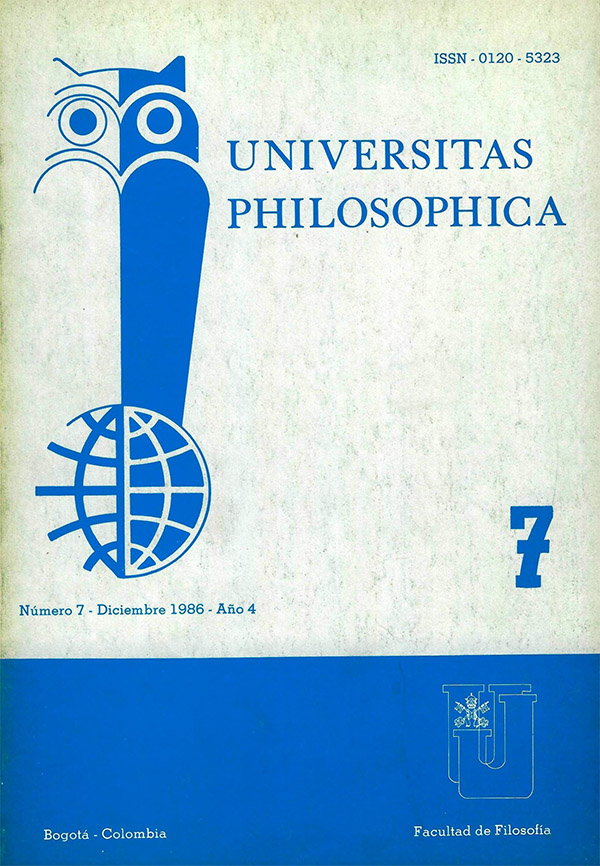Abstract
El autor presenta en este trabajo su esfuerzo por elaborar lo que
podríamos llamar el núcleo del pensamiento hegeliano: su comprensión
dialéctica de lo real. El texto que ha utilizado como base para su reflexión es el prefacio a la Filosofía del Derecho, pero recurre además a otras obras, en particular la Ciencia de la lógica de Hegel y al estudio que hace Ernest Bloch del conjunto de su pensamiento, titulado Sujeto-objeto. El pensamiento de Hegel, como apoyo auxiliar.
El artículo comienza con una introducción que pretende situar al lector en el planteamiento global que desarrolla; procede luego a estructurar su estudio en dos grandes apartes: la realidad en cuanto la comprende como un todo y la realidad en cuanto la conceptúa como un todo que deviene. En cada una de estas partes analiza las categorías que le permiten a Hegel tal comprensión. Termina con una conclusión en la que recoge los aspectos más significativos del estudio realizado.
This journal is registered under a Creative Commons Attribution 4.0 International Public License. Thus, this work may be reproduced, distributed, and publicly shared in digital format, as long as the names of the authors and Pontificia Universidad Javeriana are acknowledged. Others are allowed to quote, adapt, transform, auto-archive, republish, and create based on this material, for any purpose (even commercial ones), provided the authorship is duly acknowledged, a link to the original work is provided, and it is specified if changes have been made. Pontificia Universidad Javeriana does not hold the rights of published works and the authors are solely responsible for the contents of their works; they keep the moral, intellectual, privacy, and publicity rights.
Approving the intervention of the work (review, copy-editing, translation, layout) and the following outreach, are granted through an use license and not through an assignment of rights. This means the journal and Pontificia Universidad Javeriana cannot be held responsible for any ethical malpractice by the authors. As a consequence of the protection granted by the use license, the journal is not required to publish recantations or modify information already published, unless the errata stems from the editorial management process. Publishing contents in this journal does not generate royalties for contributors.


